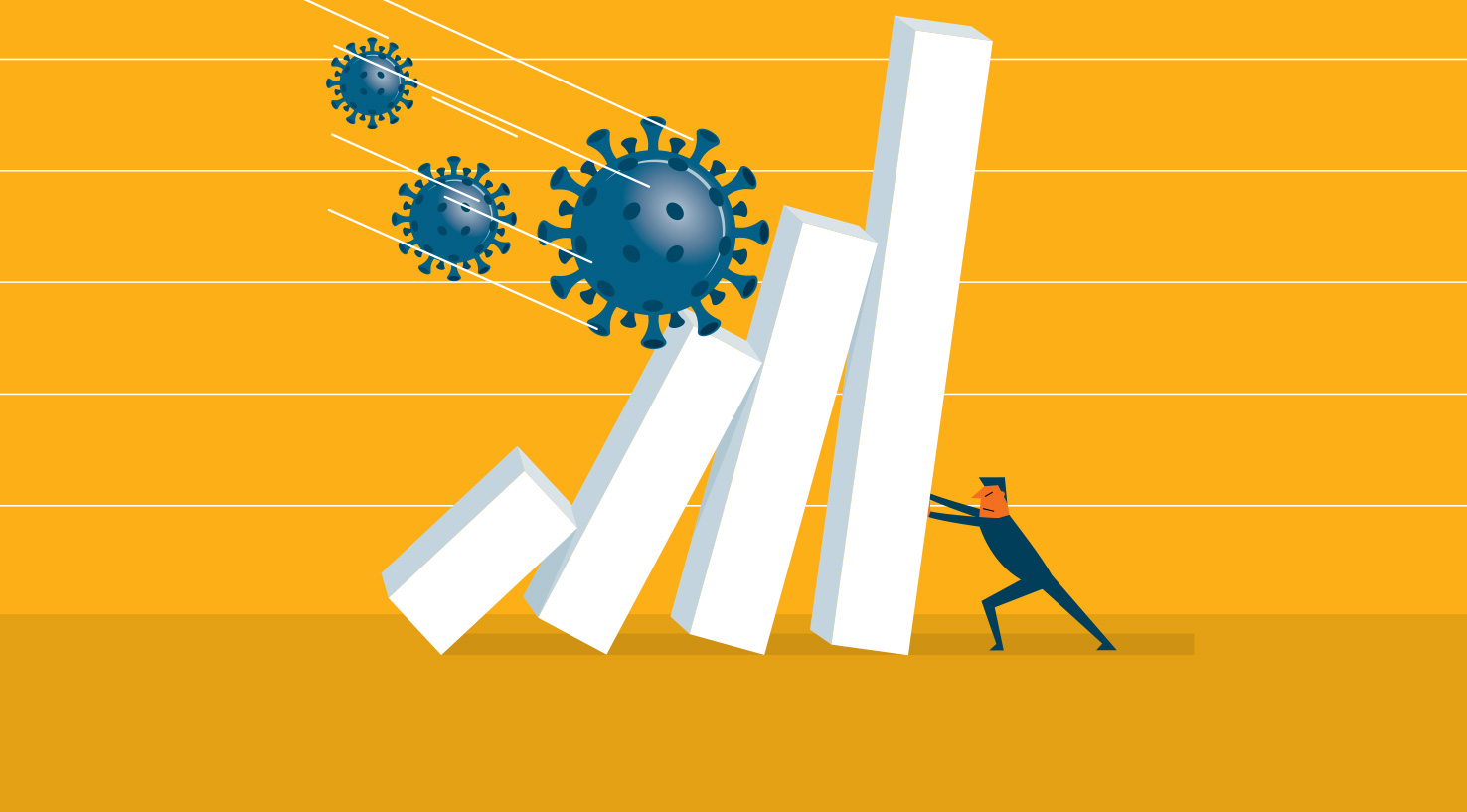Stress levels may be high these days in the paint contracting world, and if you’re among those struggling to deal with the pressure, you’re not alone. A recent survey conducted by the University of Chicago for the Data Foundation found that roughly two-thirds of Americans say they felt nervous, depressed, lonely or hopeless on at least one of their last seven days.
If that includes you, here are some tested techniques you can employ today to begin decompression and ultimately make yourselves healthier, happier, and more productive. The end of this article includes a list of additional resources identified by the Department of Health and Human Services as tools for those who may need mental health assistance.
1. Exercise regularly
Physical activity that encourages blood flow and muscle movement is key in any effective stress management program. Consider yoga, which requires an element of mental focus that can take your mind off day-to-day concerns. You’ll find all kinds of instructional resources for any yoga activity level online. A regular walking regimen can reduce stress levels and get you out in a stress-relieving, natural setting.
2. Make time for low-stress activity
On that note, make time for leisure activities, providing mental escapes from the grind. Gardening is a great springtime stress reliever. Golf, if your local courses allow it. Read, relax. Got kids? Get out and play a simple game of tag or catch. Enjoy a park if one is open nearby. Do something you like to do. If you think you don’t have time for it, look for ways to make time. Try routinely blocking time in your calendar at the beginning of each week, and use it to step away and give yourself a mental break.
3. Meditate
There are many different techniques that can be easily researched online. Most will require some experimentation and practice to learn what provides you the most benefits. The singular idea of focusing on the moment can provide real emotional and mental benefits, according to practitioners. Additionally, guided imagery, or mental trips to your “happy place,” can lower stress levels as well.
4. Eat healthy
We’ve all heard that advice before, but keep in mind that high-fat, high-sugar foods contribute to long-term stress. And some foods — oatmeal, whole grains, nuts, fresh fruits, dark chocolate — are said to have mood-boosting properties. Do your own research before making diet decisions and be mindful of the effects your diet can have on your state of mind.
5. Breathe
Successful professional athletes sing the praises of regular breathing exercises that can be performed practically anytime, anywhere. Here’s an easy one: inhale deeply through your nose, imagining clean, calming air entering your body; then exhale, imagining stress and anxiety to be exiting with your breath. Repeat.
6. Be proactive in problem-solving
The obstacles in front of you can seem collectively insurmountable. Addressing them individually in a proactive manner can help you manage them before they begin managing you. View them one at a time, and developing a solution will seem considerably less daunting than when viewed as a sum.
7. Time management
Does everything on your to-do list need to be there? Delegate or just skip what doesn’t need immediate attention to reduce your workload. This challenge may involve you making a new hire or giving up some roles or duties you may not be fully comfortable giving up quite yet. But consider the reward.
8. Don’t be afraid to get help
If the hill seems too big to climb, professional counseling can provide relief. Local offices of the Health and Human Services Department offer confidential, comprehensive mental health services, and the list that follows can help steer you toward additional resources. Should you seek professional counseling, be sure to inquire with your insurance provider about coverage that may be available. Even if only limited coverage or no coverage at all is available, consider the potential benefits of professional counseling before dismissing the option. Your mental well-being is worth the investment.
- Coping with the stress of the COVID-19 outbreak from the Centers for Disease Control and Prevention (CDC)
- Parent/caregiver guide to helping families cope with COVID-19 from the National Child Traumatic Stress Network
- COVID-19 advice for the public from the World Health Organization (WHO)
- The psychological impact of quarantine and how to reduce it from The Lancet
- COVID-19 resources for clinicians, older adults and families from Gero Central
- Tips for social distancing, quarantine and isolation during an infectious disease outbreak from the Substance Abuse and Mental Health Services Administration (SAMHSA)
- SAMHSA Disaster Distress Helpline: 1-800-985-5990
- Impactinc.org: Dial 2-1-1 or visit the Impact website for referrals for treatment, shelter, food, child care, etc.
- The National Alliance on Mental Illness (NAMI) Hotline: (800) 950-NAMI (6264) – a free hotline with specialists who can provide information and referrals for those in need of mental health assistance
- Hopeline: Text “Hopeline” to 741741 for live support via text messaging
- National Suicide Prevention Helpline: 1-800-273-TALK (8255)




